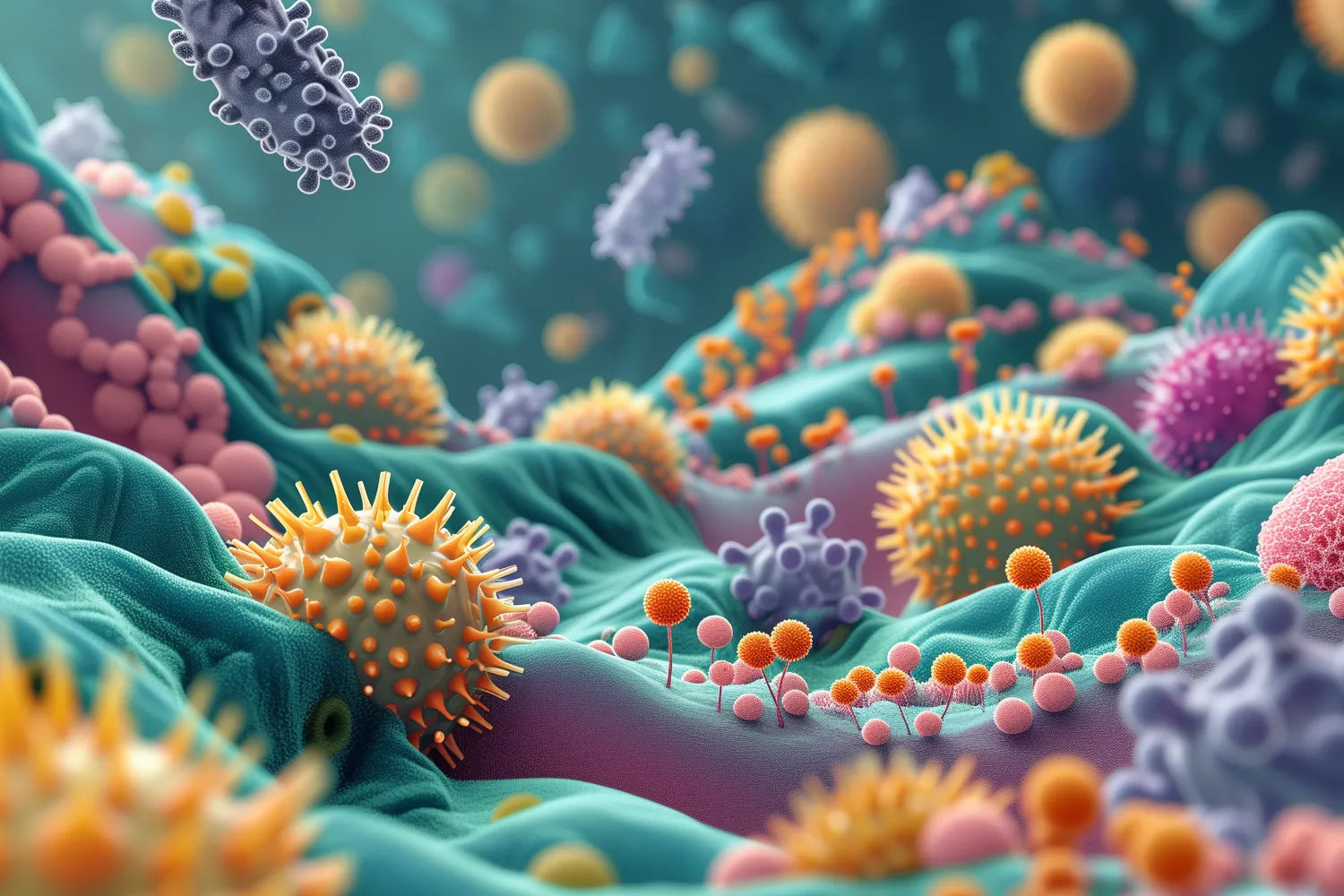
Dr. Eric Venn-Watson’s Highlights
We all experience brief periods when energy seems fleeting or non-existent. Normally, if we get rest, a good night of sleep, or a break from strenuous activity, we feel better. However, when feelings of lethargy and tiredness don’t go away, it can be a sign you’re suffering from fatigue.
Fatigue, tiredness, and exhaustion seem interchangeable, but they aren’t. They are three separate events that can leave us feeling depleted, but fatigue can become chronic, and interfere with work, family, and social life.
Let’s look at the difference between being tired, feeling exhausted, and being fatigued. We’ll also cover what causes fatigue and five vitamins that can help you eliminate it.
Tired, Fatigued, or Exhausted
It’s normal to feel sleepy from time to time; even on a daily basis, you’ll notice your energy waxes and wanes. This is completely normal and necessary. It helps our bodies prepare for rest and gives our systems time to repair and restore themselves while we sleep.
When the overwhelming feeling of needed rest is constant, however, it can indicate a larger problem.
Here are three different ways your body can send you a message that it needs rest.
Tiredness
Feeling tired is normal. You’ll feel tired on a daily basis. Normally, you feel tired in the evenings as you prepare to go to bed. Your circadian rhythm may also cause you to experience periods of tiredness during the middle of the day, and when you first wake up (especially if you don’t wake up naturally).
Tiredness doesn’t necessarily indicate that anything is wrong with your body. Normally, it means your body is working perfectly.
Symptoms of being tired are:
- Feeling sleepy
- Being forgetful
- Irritability
- Muscle weakness
If your body is simply tired, you’ll feel better after you rest.
Exhaustion
Exhaustion is a deeper level of feeling tired. You may feel exhausted after extreme physical activity, or if you don’t get enough sleep. Exhaustion is the feeling that makes you feel incredibly foggy, slightly disoriented, and mentally strained.
Exhaustion resembles fatigue, but it is usually short-term. Once you get adequate rest, which may include more than just a night of sleep, you will typically feel better and no longer feel exhausted.
Exhaustion is what you’d experience after running a marathon, which differs from the tired feeling you have after a normal workout.
Fatigue
Fatigue is different from tiredness or exhaustion. Fatigue is a chronic condition that happens even if you feel you are getting rest. You can experience fatigue for a myriad of reasons, but fatigue usually lasts weeks to months on end.
Symptoms of fatigue vary, but can include:
- Confusion that borders on delirium
- Depression and/or anxiety
- Physically feeling ill
- Muscle weakness
- Sleepiness or feeling lethargic
- Difficulty sleeping
If you’re experiencing fatigue, it can make you feel like no matter what, you’ll always be tired. Thankfully, that isn’t the case, and you can feel better if you identify the source of your fatigue. It may even be as easy as taking a vitamin every day to help you get back on track.
What Causes Fatigue?
Fatigue has numerous causes, and some of them might not be avoidable. If you’re battling a chronic disease, for instance, your treatments may leave your body feeling depleted.
Most of the time, the cause of fatigue is less serious.
Anemia
Anemia is a condition in which your body doesn’t make enough red blood cells. Red blood cells carry oxygen to the tissues in your body. Anemia is a common blood disorder, but it’s still a fairly rare condition, affecting only about 5% of the American population.
You can develop anemia by not having enough iron, folic acid, or vitamin B12 in your diet.
Mental Health Issues
Both depression and anxiety can trigger fatigue.
With depression, you may have feelings of worthlessness, complete disinterest in hobbies or social events you once enjoyed, or a complete inability to function because of overwhelming sadness.
Anxiety usually presents with feelings of overwhelming dread, worry, and restlessness.
Both of these conditions can cause your body to feel fatigued, which can make both mental health conditions even more complicated.
Diseases
Fatigue that is chronic without a lack of sleep or rest can be an indication of a bigger issue. Issues like kidney and liver disease, cancer, and COPD can cause fatigue, and that may be the symptom that leads you to a doctor for testing.
Certain treatments for these conditions can also leave you feeling fatigued and/or interfere with your ability to sleep.
Improper Diet
If you’re battling fatigue and a thorough physical examination doesn’t indicate an underlying condition, you could be feeling poorly because of a bad diet. Not getting enough vitamins and nutrients can cause you to feel sluggish or unable to complete tasks.
Excess weight and lack of exercise can also leave you feeling tired, and like your energy is depleted.
No matter the cause of your fatigue, as you get your body back on track, certain vitamins can help support you on your way to feeling better.
5 Vitamins That Help With Fatigue
There are numerous vitamins that claim they’ll help you feel more energetic, but for chronic fatigue, there are certain vitamins that your body may be lacking. These vitamins can help fill in dietary gaps and give your cells the boost they need to function better and increase your overall energy level.
1. Vitamin B12
It’s become popular to be concerned with our B12 intake, and the reason is likely because it’s gotten the reputation as some sort of miracle drug. B12 is essential in helping create red blood cells, which is important for people with anemia. A dose of B12 can help you feel more energetic if you are deficient in B12.
Most people, however, are not deficient in vitamin B12. Vegetarians and vegans may have less in their diets since B12 is mostly found in meat, dairy, and fish, but even then people on these types of diets probably get enough B12 from other sources to not be deficient.
2. Coenzyme Q10
CoQ10 is made naturally in our bodies and also found in organ meats, like liver. It helps support proper cell function, energy production, and heart health. It’s generally recommended that older populations take this supplement, as cell function declines with age.
A decrease in cellular function can lead to tissues and systems that begin to lose their ability to carry out tasks because of less energy.
3. Magnesium
Magnesium is often recommended for people suffering from fatigue as it has a calming effect on the body and can help facilitate sleep. Magnesium can also have a laxative effect, so be certain you start with a small amount to see how your body tolerates it.
4. Iron
Iron helps move oxygen throughout the body, and it’s usually prescribed to people if they suffer from anemia. Iron helps with cell function, which can be beneficial as we age. Too much iron can cause constipation, though, so if a blood test doesn’t confirm you have an iron deficiency, it’s best not to take it.
5. Pentadecanoic Acid (C15:0)
We wouldn’t be surprised if you’d never heard of pentadecanoic acid, the star ingredient of fatty15.
A saturated fatty acid, it hasn’t gotten much publicity in recent decades that have told us fat was our enemy. As it turns out, not all fat is bad.†
Odd-chain, saturated fatty acids, like pentadecanoic acid, are actually associated with positive health markers that can help you feel better and battle obstacles that leave you feeling exhausted.†
Pentadecanoic acid (also known as C15:0) helps our cells function like they’re supposed to.†* As we get older and our cellular function begins to wane, C15:0 comes to the rescue to fortify our cells and make them stronger by:†*
- Improving cell wall strength. Cell walls become flimsy when we age. This leaves our cells vulnerable. C15:0 is a sturdy fatty acid and digs into cell walls to strengthen them and keep them protected.
- Increasing mitochondrial function. The mitochondria of our cells power them to carry out their processes, but when we get older, our mitochondria become sluggish. C15:0 helps improve mitochondrial function, which can help our cells perform better.
C15:0 also binds with special receptors in the body called PPARs that control events like sleep, mood, appetite, and even immunity. By binding with these receptors, C15:0 can help restore balance to your body.
Elevate your cells. Elevate your self.
Fatty15
You’re probably not getting much C15:0 in your diet, because it’s only found in trace amounts in whole-fat dairy products and some fish. Don’t worry, it’s available in a once-a-day supplement form.
FA15™ is the pure, vegan version of C15:0 that helps boost your cellular function and support a fatigued body.†* It’s only available in fatty15, and just one fatty15 capsule a day is enough to support your cells, boost your energy, and give you the ability to age on your own terms.
Feeling tired, exhausted, or fatigued is draining. You can feel better and support your body by taking a simple little fatty acid every day.
Here’s to your health, with fatty15.
Sources:
Fatigued or just tired? There is a difference|Reuters
Anemia - Symptoms and causes|Mayo Clinic
Vitamin B12 - Health Professional Fact Sheet|NIH.gov
Eric Venn-Watson M.D.
CEO, Co-Founder
Senior Scientist, Co-Founder
Eric is a physician, U.S. Navy veteran, and Co-founder and COO of Seraphina Therapeutics. Eric served over 25 years as a Navy and Marine Corps physician, working with the special forces community to improve their health and fitness. Seraphina Therapeutics is a health and wellness company dedicated to advancing global health through the discovery of essential fatty acids and micronutrient therapeutics.
You May Also Like...
10 Foods Good for Your Liver: The Ultimate Guide
Your liver does a lot for you. If it had a voice of its own, it might ask you to eat more veggies and cut back on your Old Fashioneds. Unfortunately, the liver doesn’t receive a lot of attention until...
How To Improve Your Gut Microbiome: 6 Tips
Interested in how to improve your gut microbiome? We’ve got six tips to help your gut thrive and improve your overall digestion.


